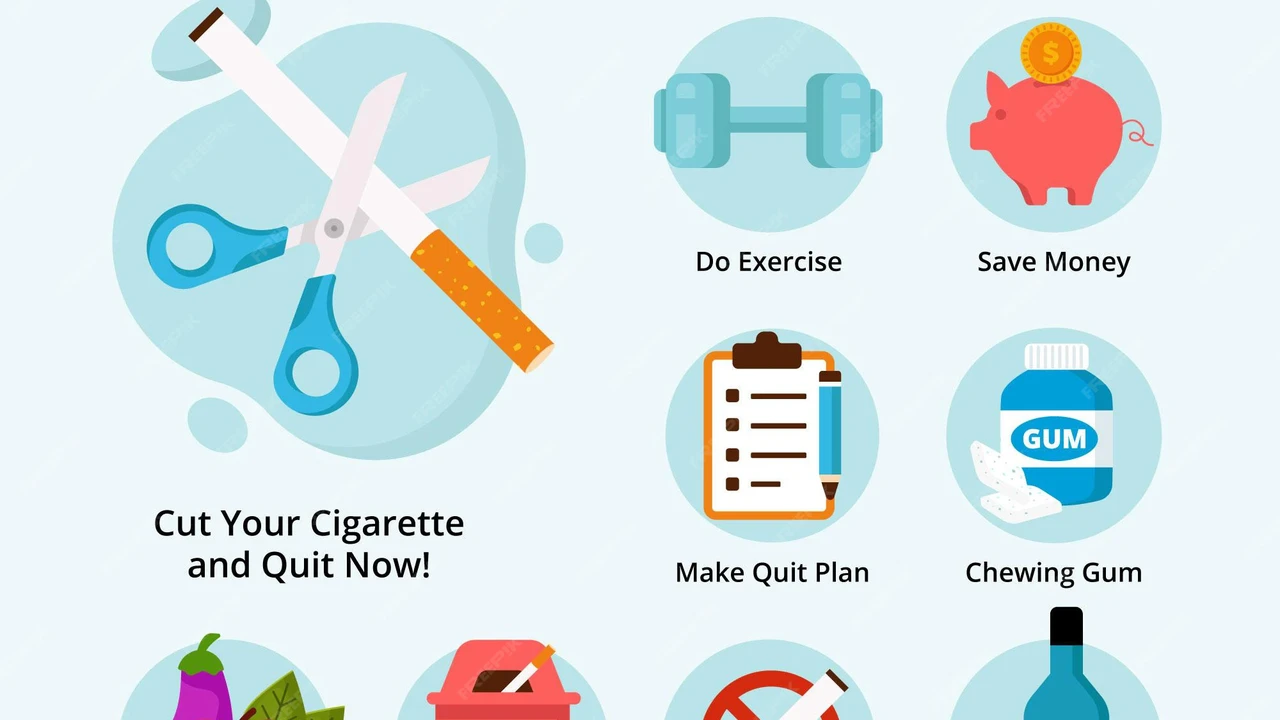5 Best Cardio Exercises for Burning Calories Fast

meta description: A strong immune system is essential for fighting off infections and staying healthy. Learn how to boost your immune system naturally through diet, lifestyle, and supplements. Strengthen your defenses and protect yourself from illness.
Understanding Your Immune System: The Foundation of Health
Your immune system is a complex network of cells, tissues, and organs that work together to defend your body against harmful invaders like bacteria, viruses, fungi, and parasites. Think of it as your body's personal army, constantly patrolling and ready to attack anything that threatens your health. When your immune system is functioning optimally, you're better equipped to fight off infections, recover from illness faster, and even reduce your risk of chronic diseases.
The immune system has two main parts:
- Innate Immunity: This is your body's first line of defense, providing a rapid but non-specific response to any potential threat. It includes physical barriers like your skin and mucous membranes, as well as immune cells like natural killer cells and macrophages that can quickly engulf and destroy invaders. Think of it as the security guards at the gate, always on duty but not always able to identify specific threats.
- Adaptive Immunity: This is a more specialized and targeted response that develops over time as your body is exposed to different pathogens. It involves immune cells called lymphocytes (T cells and B cells) that can recognize specific antigens (markers on the surface of pathogens) and mount a targeted attack. This is like your body's special forces, trained to handle specific threats with precision.
Dietary Strategies for Immune Support: Nourishing Your Defenses
What you eat plays a huge role in the health of your immune system. A diet rich in fruits, vegetables, whole grains, and lean protein provides the essential nutrients your immune cells need to function properly. Here are some specific dietary strategies to consider:
- Eat Plenty of Fruits and Vegetables: Aim for a variety of colorful fruits and vegetables, as they are packed with vitamins, minerals, and antioxidants that support immune function. Berries (blueberries, strawberries, raspberries), citrus fruits (oranges, grapefruits, lemons), leafy greens (spinach, kale, collard greens), and cruciferous vegetables (broccoli, cauliflower, Brussels sprouts) are particularly beneficial.
- Focus on Vitamin C-Rich Foods: Vitamin C is a powerful antioxidant that can help boost immune cell activity and protect against infections. Good sources include citrus fruits, bell peppers, broccoli, and strawberries.
- Include Zinc in Your Diet: Zinc is essential for immune cell development and function. Good sources include oysters, beef, poultry, nuts, seeds, and whole grains.
- Don't Forget Vitamin D: Vitamin D plays a crucial role in regulating immune responses. While you can get some vitamin D from sunlight, many people are deficient, especially during the winter months. Consider taking a vitamin D supplement or eating vitamin D-rich foods like fatty fish (salmon, tuna, mackerel), egg yolks, and fortified milk.
- Probiotics for Gut Health: A healthy gut microbiome is essential for a strong immune system. Probiotics are beneficial bacteria that can help improve gut health. Include probiotic-rich foods like yogurt, kefir, sauerkraut, kimchi, and kombucha in your diet.
- Limit Processed Foods, Sugar, and Unhealthy Fats: These foods can weaken your immune system and increase your risk of inflammation. Focus on whole, unprocessed foods instead.
Lifestyle Habits for a Strong Immune System: Beyond Diet
In addition to diet, several lifestyle habits can significantly impact your immune function:
- Get Enough Sleep: Aim for 7-8 hours of quality sleep per night. Sleep deprivation can weaken your immune system and make you more susceptible to infections.
- Manage Stress: Chronic stress can suppress immune function. Find healthy ways to manage stress, such as exercise, yoga, meditation, or spending time in nature.
- Exercise Regularly: Regular physical activity can boost immune cell activity and improve overall health. Aim for at least 30 minutes of moderate-intensity exercise most days of the week.
- Stay Hydrated: Drinking plenty of water helps flush out toxins and keeps your immune system functioning properly.
- Avoid Smoking and Excessive Alcohol Consumption: These habits can weaken your immune system and increase your risk of infections and chronic diseases.
- Practice Good Hygiene: Washing your hands frequently, especially after being in public places, can help prevent the spread of germs.
Supplements for Immune Support: When to Consider Extra Help
While a healthy diet and lifestyle are the foundation of a strong immune system, certain supplements can provide additional support, especially during times of stress or when you're at higher risk of infection. Here are some popular and effective immune-boosting supplements:
- Vitamin C Supplements: As mentioned earlier, Vitamin C is a powerful antioxidant that can help boost immune cell activity. A good option is Nature's Bounty Vitamin C 1000mg (around $10 for 100 tablets). It's widely available and provides a high dose of Vitamin C. Use it during the cold and flu season or when you feel run down. Compare this to Emergen-C (around $15 for 30 packets), which also contains other vitamins and minerals, but may have added sugars.
- Vitamin D Supplements: Vitamin D deficiency is common, and supplementing can help regulate immune responses. NOW Vitamin D-3 5000 IU (around $12 for 240 softgels) is a good choice because it provides a high dose and is easily absorbed. Compare this to Nordic Naturals Vitamin D3 Gummies (around $20 for 60 gummies) which are tasty but might be less potent and more expensive per dose.
- Zinc Supplements: Zinc is crucial for immune cell development and function. Nature Made Zinc 30mg (around $8 for 100 tablets) is a reliable and affordable option. Take it with food to minimize stomach upset. Compare to Garden of Life Vitamin Code Raw Zinc (around $25 for 60 capsules), which also contains probiotics and enzymes, but is significantly more expensive.
- Probiotic Supplements: Probiotics can help improve gut health and support immune function. Culturelle Digestive Daily Probiotic (around $25 for 30 capsules) is a well-researched probiotic strain that's known for its effectiveness. Take it daily to maintain a healthy gut microbiome. A cheaper alternative is Renew Life Women's Probiotic (around $18 for 30 capsules), which caters specifically to women’s gut health but might not be as potent.
- Elderberry Supplements: Elderberry has been shown to have antiviral properties and may help reduce the duration and severity of colds and flu. Sambucol Black Elderberry Syrup (around $15 for 4 oz) is a popular and effective option. Take it at the first sign of illness. Compare to Nature's Way Sambucus Elderberry Gummies (around $18 for 60 gummies), which are easier to take for kids, but might have added sugars.
- Echinacea Supplements: Echinacea is an herb that may help stimulate immune function. Gaia Herbs Echinacea Supreme (around $20 for 60 capsules) is a high-quality option that's standardized for potency. Take it preventatively or at the first sign of illness. A cheaper alternative is Echinacea Tea (various brands, around $5-8 per box), which provides a lower dose but is a soothing option.
- Garlic Supplements: Garlic has antimicrobial and immune-boosting properties. Kyolic Aged Garlic Extract (around $20 for 100 capsules) is a good option because it's odorless and easy to digest. Take it daily for overall immune support. Compare this to just eating raw garlic, which might be more potent but also more pungent and harder to digest.
Choosing the Right Supplements: A Comparison Guide
When choosing supplements, it's important to consider factors like:
- Quality: Look for supplements from reputable brands that have been third-party tested for purity and potency.
- Dosage: Follow the recommended dosage on the product label.
- Ingredients: Check the ingredient list for any potential allergens or interactions with other medications you're taking.
- Form: Supplements come in various forms, such as capsules, tablets, gummies, and liquids. Choose the form that's easiest for you to take.
- Price: Compare prices from different brands and retailers to find the best deal.
Here's a table comparing the supplements mentioned above:
| Supplement | Brand | Form | Price (Approx.) | Benefits | Considerations | Best Use |
|---|---|---|---|---|---|---|
| Vitamin C | Nature's Bounty | Tablets | $10/100 | Boosts immune cell activity | High dose, widely available | Cold & flu season |
| Vitamin C | Emergen-C | Packets | $15/30 | Boosts immune cell activity, other vitamins | Added sugars, more expensive | Early signs of illness |
| Vitamin D | NOW | Softgels | $12/240 | Regulates immune responses | High dose, easy absorption | Daily maintenance |
| Vitamin D | Nordic Naturals | Gummies | $20/60 | Regulates immune responses | Less potent, more expensive | For those who dislike pills |
| Zinc | Nature Made | Tablets | $8/100 | Immune cell development | Affordable, take with food | Daily maintenance |
| Zinc | Garden of Life | Capsules | $25/60 | Immune cell development, probiotics, enzymes | More expensive | Digestive support |
| Probiotic | Culturelle | Capsules | $25/30 | Improves gut health | Well-researched strain | Daily maintenance |
| Probiotic | Renew Life | Capsules | $18/30 | Improves gut health, women's health | Less potent | Women's health support |
| Elderberry | Sambucol | Syrup | $15/4 oz | Antiviral properties | Effective syrup | At first sign of illness |
| Elderberry | Nature's Way | Gummies | $18/60 | Antiviral properties | Added sugars | For kids |
| Echinacea | Gaia Herbs | Capsules | $20/60 | Stimulates immune function | Standardized potency | Preventatively or at first sign of illness |
| Echinacea | Various | Tea | $5-8/box | Stimulates immune function | Lower dose, soothing | Soothing option |
| Garlic | Kyolic | Capsules | $20/100 | Antimicrobial, immune-boosting | Odorless, easy to digest | Daily maintenance |
Specific Scenarios for Supplement Use: Tailoring Your Approach
The best way to use immune-boosting supplements is to tailor your approach to your specific needs and circumstances. Here are some examples:
- During Cold and Flu Season: Consider taking Vitamin C, Vitamin D, and Elderberry supplements to help prevent and reduce the severity of illness.
- When Traveling: Traveling can expose you to new germs and weaken your immune system. Take probiotics and Vitamin C to support your gut health and immune defenses.
- During Times of Stress: Stress can suppress immune function. Consider taking Vitamin D, Zinc, and adaptogenic herbs like Ashwagandha to help manage stress and support your immune system.
- If You Have a Weakened Immune System: Talk to your doctor about which supplements are right for you. They may recommend a combination of Vitamin C, Vitamin D, Zinc, and probiotics.
- For Daily Maintenance: A multivitamin, Vitamin D, and a probiotic can support overall immune health.
Potential Side Effects and Interactions: Proceed with Caution
Supplements are generally safe when taken as directed, but it's important to be aware of potential side effects and interactions with other medications. Some supplements, like Vitamin C, can cause digestive upset in high doses. Others, like St. John's Wort, can interact with certain medications. Always talk to your doctor before taking any new supplements, especially if you have any underlying health conditions or are taking other medications.
The Bottom Line: A Holistic Approach to Immune Health
Boosting your immune system naturally involves a holistic approach that includes a healthy diet, regular exercise, adequate sleep, stress management, and, when appropriate, strategic supplementation. By focusing on these key areas, you can strengthen your defenses and protect yourself from illness. Remember to consult with your doctor or a registered dietitian to develop a personalized plan that's right for you. Ultimately, prevention is better than cure, and investing in your immune health is an investment in your overall well-being.
:max_bytes(150000):strip_icc()/277019-baked-pork-chops-with-cream-of-mushroom-soup-DDMFS-beauty-4x3-BG-7505-5762b731cf30447d9cbbbbbf387beafa.jpg)






